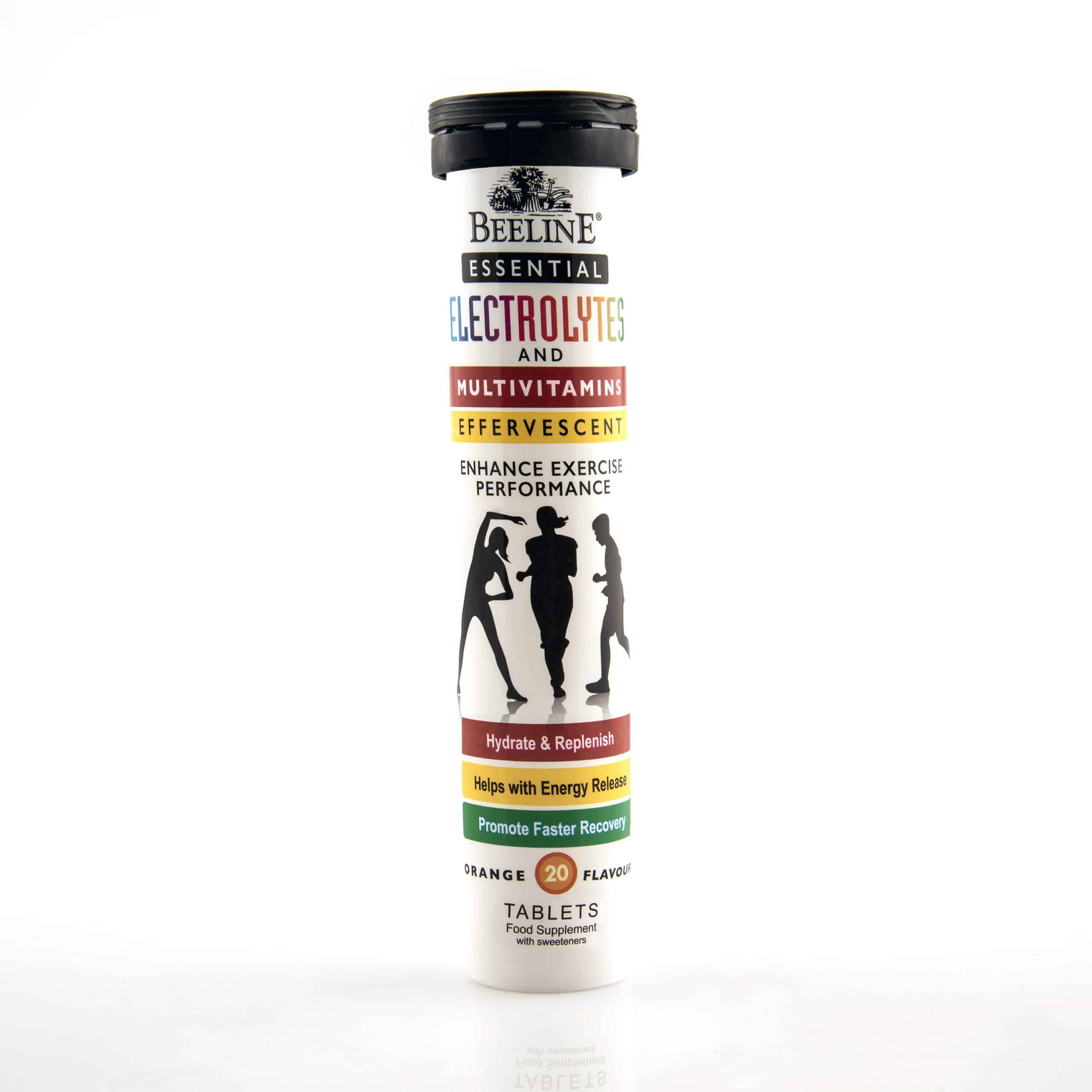Electrolytes Benefits, Sources and Electrolyte Imbalance
The benefits of electrolytes include providing nutrients for the body to function properly, controlling fluid balance, keeping hydrated, supporting muscles, exercise performance and recovery, assisting energy release, and regulating pH acid levels. Find out the types, sources and benefits of electrolytes, along with the symptoms of electrolyte imbalance.
What are Electrolytes?
Electrolytes are essential minerals and salts that are required for your body to function properly. Every cell in the body contains electrolytes. They are found in our blood, urine, bodily tissues, and body fluids.
These electrolyte minerals carry an electric charge when dissolved in water. This is where their name comes from. The human body is made up of approximately 60% water. This body water composition decreases as you age. The electric charge is needed for the body to survive and function properly.
What Do Electrolytes Do?
Our bodies require electrolytes for good health and wellbeing.
So, what do electrolytes do to your body? Electrolytes are vital for many key bodily functions including your nervous system and muscles. Electrolytes help your body to regulate many chemical reactions, keep you hydrated, maintain the balance of fluids, regulate internal pH levels, regulate muscle contractions, nerve function, and healing damaged tissue.
Types of Electrolytes
What are the types electrolytes? The 7 main types of electrolytes in our bodies include:
- Sodium
Sodium is a mineral that is needed by the body for it to work properly. Many foods contain sodium. Sodium contributes to your body balancing fluid levels, blood pressure levels, nerves, and muscle function. - Potassium
Potassium is a mineral that the body requires to function correctly. It can be found in many fruits and vegetables. Potassium supports metabolism, heart, nerves, and muscle function. - Magnesium
Magnesium is an essential mineral for a healthy body. It is found in certain nuts, seeds, beans and green vegetables. Magnesium contributes to healthy bones, muscles, heart, blood pressure, teeth, the nervous system and energy release. - Calcium
Calcium is a mineral which is a vital nutrient for survival and many bodily functions. It supports healthy bones, teeth, muscles, the nervous system, heart and blood pressure. - Chloride
Chloride helps to control and balance the amount of fluids in the body. It also contributes to blood pressure regulation. - Phosphate
Phosphate contributes to a number of bodily functions. It interacts together with calcium to support bones, teeth, muscles and the nervous system. - Bicarbonate
Bicarbonate helps regulate your body’s pH acid balance. It also supports carbon dioxide transport in the bloodstream.
Electrolytes Benefits
Why does the body need electrolytes? The benefits of electrolytes include:
- Provides nutrients to the cells around your body to function properly.
- Controls your fluid balance and the amount of water in your body.
- Helps to keep you hydrated.
- Regulates your internal pH acid levels to keep you within a normal range.
- Helps maintain blood pressure levels.
- Contributes to cardiovascular health by regulating heart rate.
- Supports your muscle function and regulation of muscle contractions.
- Supports a properly functioning nervous system to transmit nerve signals between the brain and body.
- Helps your body to get rid of unwanted waste from the cells.
- Contributes to healthy bones and teeth.
- Contributes to healthy blood clotting for bodily wounds to heal and stop bleeding.
- Assists with energy release throughout the body.
- Helps improve exercise performance.
- Contributes to faster recovery after exercising.
- Assist healing and repairing damaged tissue throughout the body.

Exercise and Electrolytes
Muscle contraction happens when we engage in activity and exercise. It is the tightening, shortening, or lengthening of muscles in response to activity or movement.
For our bodies to function properly, electrolytes including sodium, potassium and calcium are required by our muscles to contract. When these minerals become low, our muscles can become weak. This can lead to muscle spasm, cramp, pain, and injury.
Electrolytes can be lost through sweat during exercising. Exerting the body can result in the loss of key electrolytes such as sodium, potassium and magnesium. This may inhibit sports performance, recovery and the enjoyment of sport.
Electrolyte Imbalance
What is an electrolyte imbalance? The levels of electrolytes in relation to water levels in our bodies goes up and down constantly. The kidneys help to balance electrolytes. An electrolyte imbalance occurs when the levels of electrolytes in the blood are either too high or too low.
What causes an electrolyte imbalance? The causes of electrolyte imbalance include insufficient nutrients in the diet, dehydration, exercise, and a range of health conditions such as kidney disease, diabetes and heart failure. The most common occurrence of electrolyte imbalance is dehydration due to sweating, diarrhea or vomiting when ill.
Risks of Electrolyte Imbalance
What are the risks associated with an electrolyte imbalance? Electrolyte imbalances are not good for your health and wellbeing, as they interfere with the way your body functions.
Older adults are particularly at risk of an electrolyte imbalance.
An electrolyte imbalance that is either too high or too low can potentially have serious risks if it is significant. In the most serious cases, this could potentially be life-threatening.
Symptoms of Electrolyte Imbalance
So, what happens to your body when it is low on electrolytes, or else too high? There are a broad range of negative effects caused by too high or low levels electrolytes in your body. The symptoms felt vary depending upon which electrolyte mineral imbalance that is causing the issue.
Electrolyte imbalance symptoms can include:
- Dehydration
- Tiredness and fatigue
- Weak muscles
- Cramps
- Muscle spasms
- Stiff joints
- Bone pain
- Headache
- Irregular heart beat
- Changes in blood pressure levels
- Shortness of breath
- Numbness
- Tingling
- Confusion
- Irritability
- Convulsions
Causes of Electrolyte Imbalance
So, what are the causes of electrolyte imbalance? There are a number of reasons that can cause of an electrolyte imbalance. These include:
- Dehydration
- Vomiting
- Diarrhea
- Sweating
- Exercise
- Diet
- Age
- Drugs
- A number of serious health conditions such as cancer, kidneys and the heart.
Testing Electrolytes
A blood test is needed to test for electrolyte levels. The electrolyte test is called an electrolyte panel. According to the NHS, it measures electrolyte levels in the blood and checks if there is an electrolyte imbalance in the body and an acid-base imbalance.
What are the Normal Ranges for Electrolyte Levels?
Testing electrolytes measures the concentration of each mineral in a specific amount of blood. According to Cleveland Clinic, the normal ranges for electrolyte levels are:
- Sodium: 136 to 144 millimoles per liter.
- Potassium: 3.7 to 5.1 millimoles per liter.
- Calcium: In adults, 8.5 to 10.2 milligrams per deciliter.
- Chloride: 97 to 105 millimoles per liter.
- Magnesium: 1.7 to 2.2 milligrams per deciliter.
- Phosphate: 2.5 to 4.8 milligrams per deciliter.
- Bicarbonate: 22 to 30 millimoles per liter.
Sources of Electrolytes
How do you get electrolytes? We get electrolytes from our diet in the food we eat and the drinks we drink. Also, our bodies produce some electrolytes. The key dietary sources of electrolytes are:
1. Food
Electrolyte minerals are found in a range of food including fruit and vegetables. Good food sources of electrolytes include:
- Bananas are high in potassium.
- Avocados are high in potassium and magnesium.
- Spinach is good for magnesium and potassium.
- Beans and lentils are rich in potassium and magnesium.
- Oranges are good for potassium and calcium.
- Strawberries are high in magnesium.
- Watermelon contains potassium, magnesium and sodium.
- Yogurt is a good for calcium, potassium, magnesium and phosphorus.
- Tomatoes contain potassium, magnesium and sodium.
- Potatoes are rich in potassium.
- Beets are high in potassium.
- Fish including salmon, trout and tuna is a source of sodium, potassium, phosphorus and magnesium.
- Cheese is high in calcium.
2. Drinks
Electrolytes are found in a number of drinks. Drink sources of electrolytes include:
- Milk is good for calcium, potassium, and phosphorous.
- Coconut water contains potassium, sodium and magnesium.
- Beeline Electrolytes and Multivitamins Effervescent Tablets drink contains potassium, sodium, chloride, calcium and magnesium along with other vitamins and minerals.
3. Electrolyte Supplements
Dietary supplements are a good source of key electrolytes to help ensure that you consume enough nutrients to support your body’s nutritional requirements. Our electrolyte supplement, Beeline Electrolytes and Multivitamins Effervescent Tablets help to improve exercise performance and reduce recovery time after exercising. The electrolyte supplement drink helps to release energy, hydrate and replenish the body with electrolytes and vitamins. The supplement is suitable for sports participants to help enhance performance and recovery for sports including cycling, running, GAA, tennis, rugby, soccer and more. Adults and children over 12 years of age are recommended to take the supplement daily.
When to Take Electrolytes
Electrolytes should be consumed through your diet and drinks every day. To ensure that you keep your electrolyte levels balanced, an electrolyte supplement can be consumed daily.
Dehydration
Dehydration is the when there is not enough water in your body. It happens when your body either uses or loses more fluid than you take in. This impacts normal bodily functions.
How to Replenish Electrolytes
If you are dehydrated, it is important to replace the lost fluids to replenish electrolytes and rehydrate.
Exercise, heat, sweating, illness, vomiting and diarrhea can lead to dehydration and the loss of key electrolytes. To replenish electrolytes, consume foods and drinks that are high in electrolytes along with taking Beeline Electrolytes and Multivitamins Effervescent Tablets.
If you have an electrolyte imbalance, it is important to restore electrolyte levels to the correct levels to maintain health and wellness.
Questions Electrolytes
- What are the benefits of taking electrolytes?
The benefits of electrolytes include:
- Keeps you hydrated.
- Controls the body’s fluid balance.
- Provides nutrients for the body to function properly.
- Supports energy release.
- Helps improve exercise performance and recovery.
- Supports muscle function.
- Contributes to maintaining strong bones and teeth.
- Supports the nervous system.
- Helps maintain blood pH acid levels.
- How do I get electrolytes?Good sources of electrolytes include dietary supplements along with foods and drinks rich in electrolytes. These include:
- Vegetables such as spinach, beans and lentils.
- Fruit such as bananas, avocados, oranges and strawberries.
- Fish.
- Cheese.
- Is it good to drink electrolytes every day?Yes, our bodies require electrolytes to function properly. Beeline Electrolytes & Multivitamins Effervescent Tablets is a supplement that is recommended to be taken every day by adults and children over 12 years old.


